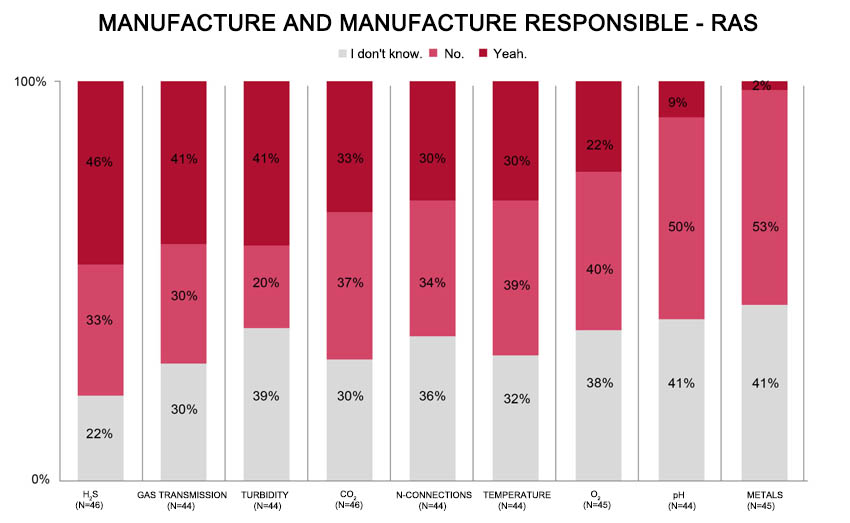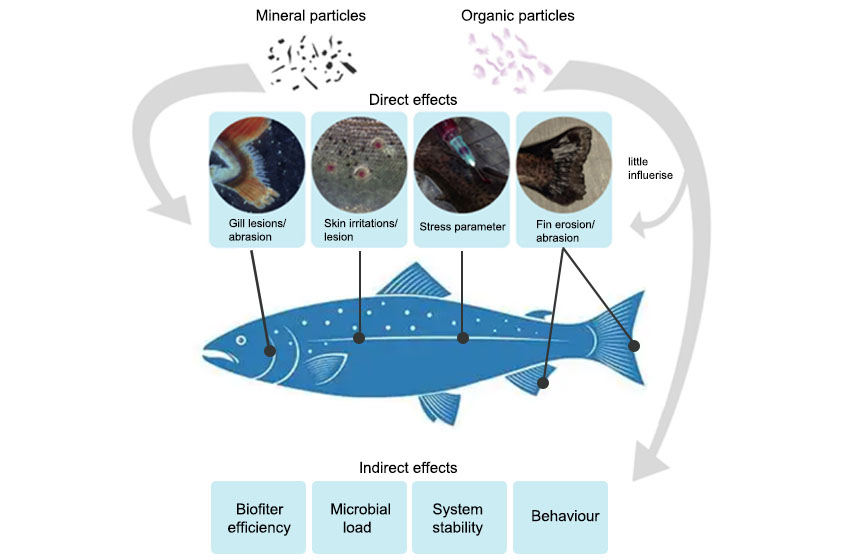

As global demand for sustainable aquaculture increases, the production efficiency and health issues in salmon farming have become hot topics for research and practice. Gill health, a key factor affecting the overall growth and reproductive capabilities of fish, is directly related to the economic benefits and sustainability of aquaculture. Recent studies (e.g., Somerset et al., 2023) have shown that water quality and Total Suspended Solids (TSS) management play crucial roles in maintaining gill health in salmon.
The Importance of Gill Health
The gills of salmon are the primary organs for gas exchange and waste elimination. Damage to the gills not only reduces respiratory efficiency but can also trigger a series of immune system problems (Koppang et al., 2015 ) Some studies have found that fish with healthy gills exhibit stronger resistance to diseases, which means ensuring gill health can directly improve overall growth rates and survival rates.
The Challenge of Suspended Solids
In Recirculating Aquaculture Systems (RAS), suspended solids primarily originate from fish feces, uneaten feed, and microorganisms. Prolonged exposure to high concentrations of solids can cause physical damage and pathological changes to the gills of salmon. According to research by Becke et al. (2018), when TSS levels exceed 100 mg/L, fish growth and health begin to be significantly affected. Managing the presence of these particles is essential for ensuring gill health.
The Role of Customized LED Solutions
Introducing customized LED modules can bring significant improvements to aquaculture. On one hand, customized LED lighting can optimize light conditions in the water, promoting the growth of beneficial algae and microorganisms, thereby improving water quality. On the other hand, by providing light at specific wavelengths, LED lighting can stimulate foraging behavior in salmon, enhancing their nutrient intake (Hernández et al., 2022). Research shows that appropriate lighting conditions can strengthen the immune system of salmon, helping to reduce the occurrence of gill infections.
Data-Driven Water Quality Management
To ensure optimal gill health, aquaculture farms need to implement strict water quality monitoring and management strategies. Regular testing of TSS levels, effective filtration systems, and the use of portable particle analyzers can significantly improve the cleanliness and quality of the water. By promptly responding to fluctuations in water quality and exceeding particle levels, farmers can effectively prevent gill damage and optimize the farming environment.
Conclusion
In conclusion, the combined use of customized LED solutions and meticulous water quality management can not only significantly enhance the gill health of salmon but also promote rational resource utilization and sustainability in aquaculture. In the future, if aquaculture operators prioritize data-driven management and technological innovation, they will gain a competitive edge in an increasingly competitive market.

